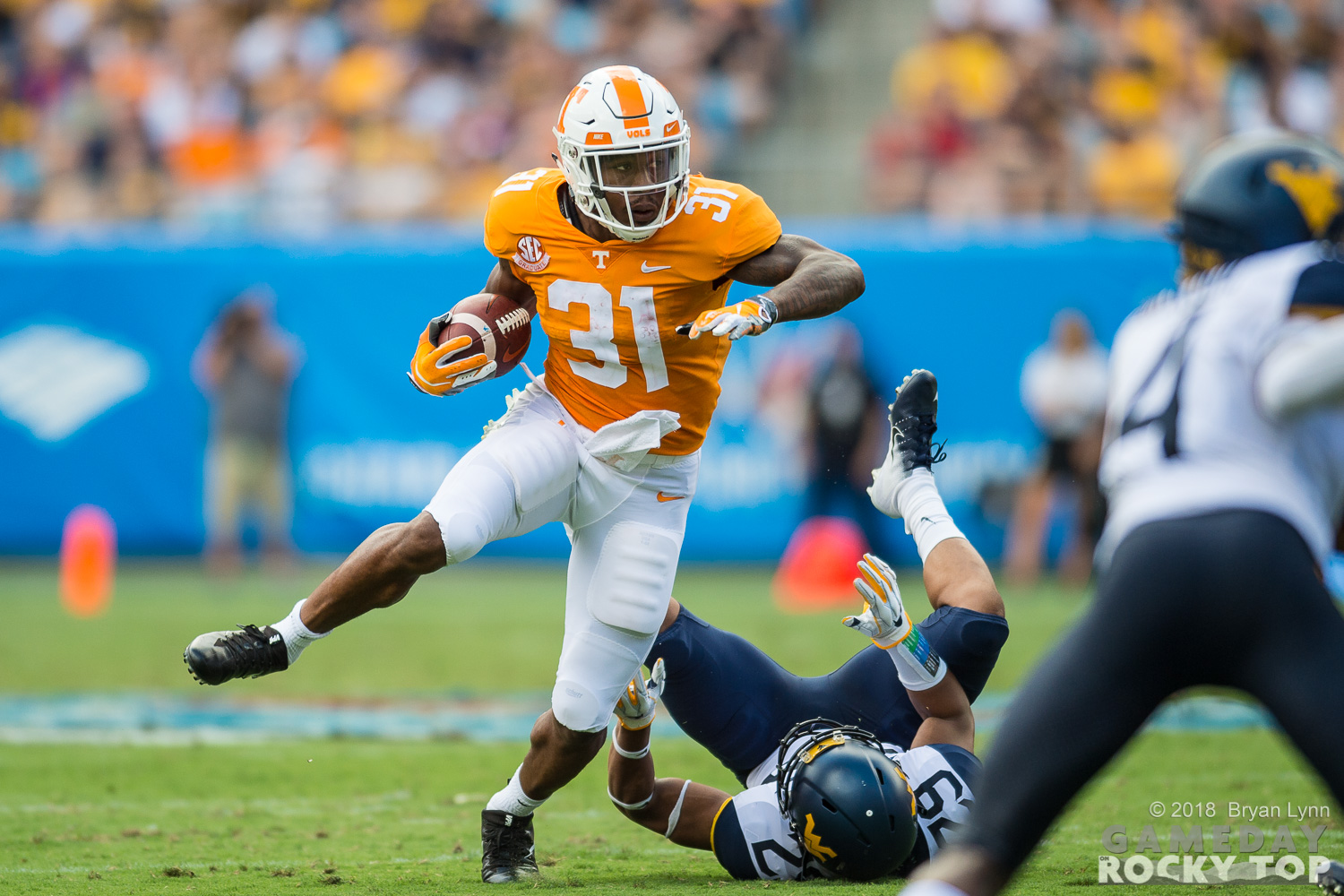It will not surprise you to find (via data from Sports Source Analytics) the Vols are still near the bottom in running the football in the first quarter: 46 carries for 74 yards, a robust 1.61 yards per carry. That first quarter average is 128th nationally (good news: Charlotte is 130th). The Vols are a not-great-but-not-terrible 78th nationally in rushing average overall (4.2 yards per carry); of note, that’s better than Auburn (4.17), among others. Tennessee averages 4.02 yards in the second quarter, 7.33 in the third (bolstered by Ty Chandler’s 81-yard touchdown), and back to 4.02 in the fourth. In our running theme (no pun intended) for this year, the ground game never achieves excellence, but becomes competent as the game goes on. But that is far from the truth in the first quarter.
When you look at each player’s overall stats, it seems more simple than it actually is: Ty Chandler has 40 carries for 247 yards (6.18 per), and Madre London has 36 for 205 (5.69). But Chandler had only four carries before getting hurt against West Virginia, and had a good-but-not-great 19-for-66 (3.47 per) against Florida. London had 11-for-66 against the Gators, but only six yards on three carries last week. Tim Jordan, who looked very much like the answer against West Virginia, has just 43 carries for 140 yards in the last four games. It’s tough when you’re trying to rotate carries among four backs. But none of them are getting the Vols off to a good start in the first quarter.
The Vols are also 24th nationally in carries on first down: 105 runs, 39 passes. If the desire is to make defenses expect the run early, it’s working fairly well when the Vols actually do throw it on first down: 28-of-39 for 407 yards (10.4 yards per attempt). A 71.8% completion percentage is 13th nationally on first down.
But a lot of the issues in the run game aren’t just about running early in the game or a series, but on third-and-short. Tennessee has repeatedly tried to muscle their way forward on 3rd-and-1, and the results haven’t been pretty. On 3rd-and-1-to-3, the Vols have 12 carries for 11 yards. Only five of those 12 runs have picked up the first down. I’ve found myself almost wishing for the Vols to be in 3rd-and-4 than 3rd-and-1, because they’ll at least give themselves more options. The numbers back this up too: on 3rd-and-4-to-6, the Vols have converted five first downs on nine passing attempts. Tennessee is more successful throwing the ball on third-and-medium than running it on third-and-short.

